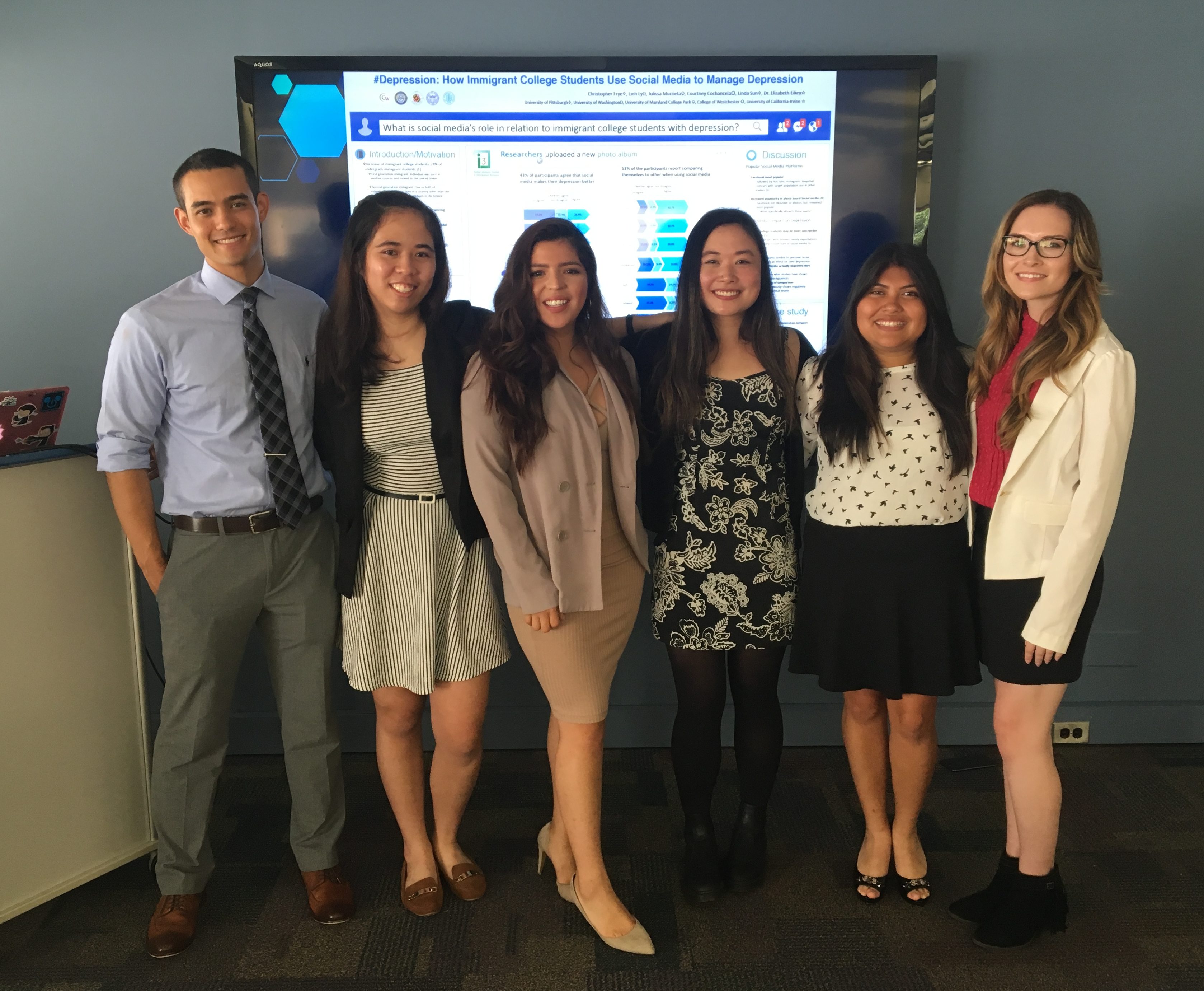i3 Scholars: Courtney Cochancela, Christopher Frye, Linh Ly, Julissa Murrieta, Linda Sun
Research Advisor: Dr. Elizabeth Eikey, Postdoctoral Fellow, University of California, Irvine
Publications
#Depression: Findings from a Literature Review of 10 Years of Social Media and Depression Research
Julissa Murrieta, Christopher C. Frye, Linda Sun, Linh G. Ly, Courtney S. Cochancela, Elizabeth V. Eikey. iConference 2018. Sheffield, UK.
Abstract: The purpose of our literature review was to understand the state of research related to social media and depression within the past 10 years. We were particularly interested in understanding what has been studied in relation to immigrant college students, as they are especially at risk for depression. Searching three databases, ACM Digital Library, PubMed, and IDEALS, we found 881 research articles. Based on our criteria, 78 research papers were included in our analysis. Although social media use is common among college students and depression is an issue for many immigrants and college students, we found few studies that focused specifically on college students, and we identified no studies on immigrant college students or college-aged immigrants. The research articles focused primarily on Twitter and general social media usage (rather than specific social media platforms) and commonly employed qualitative methods. We identify four gaps in the existing literature, why they matter, and how future research (our own included) can begin to address them.
Investigating Health Self-Management among Immigrant College Students with Depression
Jordan Dodson, Jenni Thang, Naika Saint Preux, Christopher Frye, Linh Ly, Julissa Murrieta, Linda Sun, Elizabeth V. Eikey. iConference 2019. Washington, DC, USA.
Abstract: Digital tools for health hold a lot of promise in terms of empowering individuals to take control over their health and improving access to care. This may be especially critical for marginalized individuals, such as immigrant college students, and those who face stigmatizing conditions, such as depression. However, research is limited on how these tools fit into users’ existing practices around health management. In order to address this gap, we first investigate existing practices by focusing on a specific population: college students with depression ranging from immigrant generation 1 to 2.5. This group is important to study as they are at an increased risk for depression but may be less likely to access traditional treatment. We present results about their practices around health self-tracking and digital tools specific to depression management. Based on a survey of 83 participants, we found that although students with depression across these various immigrant generations engage in health self-tracking (94%), few track mental health indicators and most do not use mobile apps (81.9%) or other online resources (86.7%) to help with their depression. Those that do use apps and online resources offer insights into their depression management needs.
